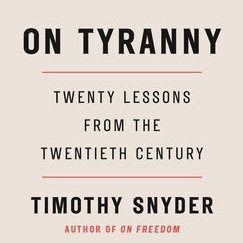By LAUREN GROFF
Once upon a time, I believed that writing was the same thing as being a writer. This was before I understood that scribbling a messy sentence in a notebook was not actual writing, a time when I bought gamely into the self-sparked romance of becoming a writer: a life of moonlit walks beside rivers, bare apartments dancing with light, foreign languages drifting through a window full of geraniums. Being a writer meant being somewhere else, anywhere that promised architecture and meaningful encounters with sophisticated natives and a chilly, ascetic version of me pinned like an anchorite to my pages. I knew I could never be a writer in the place where I was born, small, cold Cooperstown with its mysterious lake. Laughable idea, that!
And so, at eighteen, I shipped out for ten years. I chased the image of myself in smart spectacles and black cashmere across the world to France, where, it is true, I learned about the misery I thought a writer needed to suffer. I returned fat as a foie gras goose and spent four years at college in the chill silence of the Pioneer Valley; I took two terms off to row at Oxford; I graduated and bartended in Philadelphia; I worked at Stanford University in Palo Alto; I hibernated badger-like in the warmth of an MFA program in Madison, Wisconsin. And then, after a decade of constant packing and unpacking, searching for the elusive life that would finally confirm me as a writer, I fell, in exhaustion, into the last place on Earth I ever thought I’d want to live—messy, humid Florida. There is nothing glamorous in Gainesville, a place that chooses to nickname itself The Swamp. The only river I know of here is infested with alligators. My garage studio crawls with palmetto bugs, which is simply high-euphemism for cockroaches. My sons cry in the house, unappeased by the babysitter, and I have to tie my cardigan to my office chair to keep myself from rushing in to comfort them.
But here, at last, I can laugh at the wandering former me, that scribbler who didn’t know the simplest thing about the life I wanted to live. To write, all one needs is to wake up, to close the door, to sit down; and to do it the next day and the next day and the next. The place where one wakes is immaterial, as is the view in the window. I have leached out of myself the romance of being a writer and can live with what is left: the writing itself. This is not to say that place, in fiction, doesn’t matter. In fact, the opposite is true and I can’t write a scene without spending hours or days with my eyes closed, trying to build the setting of my scenes, putting the nicked silverware in the drawers and elaborating on the texture of the wallpaper. But I gave up on molding my life to my fictional idea of what a writer’s life should be, and when I did, the internal landscape began to take precedence over the external, the mind’s eye revealed more than the eyeball, and the hours of steady concentration within the dark, closed container of my skull become what, in the end, daily releases me into my work.
Lauren Groff is the author of The Monsters of Templeton, Delicate Edible Birds, and Arcadia. Her stories have appeared in journals including the Atlantic Monthly, Ploughshares, Glimmer Train, and One Story, and in anthologies including The Pushcart Prize: Best of the Small Presses, Best New American Voices, and the 2007 and 2010 editions of Best American Short Stories.


